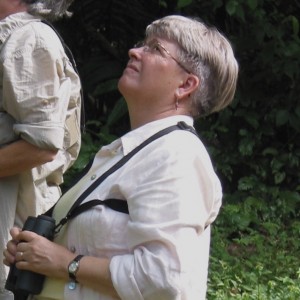Word has it that I’m a little crazy. Admittedly, I’m different from a lot of other people, but you’re different from everybody else, too. We can all come up with some crazy ideas. They may be foolish, idiotic, silly, farcical, laughable, nonsensical, or half-baked, but everyone gives birth to them and it doesn’t mean that we’re all mentally deranged.
I do go by the name Batty, sometimes. That’s what my grandchildren call me. My nieces call me Aunt Batty. It started when my granddaughter Zoe, now fourteen, started to talk. I don’t know why she started calling me Batty, but it stuck and is quite an apt name. I much prefer it to Granny, Grammy, or Nana.
To me, Batty simply means different. I may be what others call ditzy or eccentric, but I’m not unhinged. I’m dissimilar to many, but we are all different from one another. Janet, down the street, has red hair and thinks vanilla ice-cream is to die for. John, over on Main, has black hair and loves to skydive. They may be poles apart when it comes to religion and politics. They are both individuals.
Some of us are more open than others and some of us are happier than others. Some people suffer from depression. Others might be bipolar, or possibly, schizophrenic. They are not crazy. They have a mental illness that in most cases is treatable, just like TB, cancer, or the common cold.
When I was small, the talk amongst family members was that my grandmother on my mother’s side was “crazy.” She apparently did some horrible things that no one ever talked about and was eventually found to be an unfit mother. She became the big, dark family secret. Everyone whispered about her and some wouldn’t talk about her at all. They seemed to think that if anyone mentioned her in public, the neighbors would find out that she was insane and shun the whole family. It was all about how they looked in other peoples eyes.
I was never told what her mental health issues were or if she was ever treated. But as a kid, I adored her. I didn’t get to see her very often, but when I did, I thought she was funny, loving, and an original. Her hair was short, frizzy and dyed a strawberry blond color. She laughed a lot in a loud kind of way and had canaries in cages all over her house. I didn’t believe what everyone said about her. But as I got older and my mother told me a few stories about her, I knew she was mentally ill.
As someone who has often struggled with depression and anxiety disorder, I sometimes thought I might have inherited my grandmother’s problems. I was ashamed and feared that someone might discover I was crazy, mad, cuckoo, loony, or wacko. For me that translated into being, “ A bad and worthless person.” My father’s parents knew about Grandma, and delighted in telling my mother that, “The apple never falls far from the tree.” Because of their cruelty, I’m sure my mother felt great shame and worthlessness.
I’ve been diagnosed with PTSD because of childhood abuse. My father had it as a result of his experiences fighting in World War II. My mother came from an abusive home and she most likely had it, too. They were not crazy, nor am I.
In seeking treatment I’ve worked long and hard to minimize my symptoms by understanding how the brain changes when a person is abused. I know that recovery is possible and can provide us with happy and peace filled lives. Sure, I can still get depressed or have a panic attack, but I know what to do to make myself feel better.
Hiding mental illness by sweeping it under the carpet or making cruel judgments about it, only makes the stigma worse. In todays world, many with mental illness are beginning to speak out about their problems, their need for support, and proper care.
Let’s stand tall to end the stigma of “crazy” together. Speak out. If you struggle with mental illness seek treatment. You have nothing to be ashamed of.

